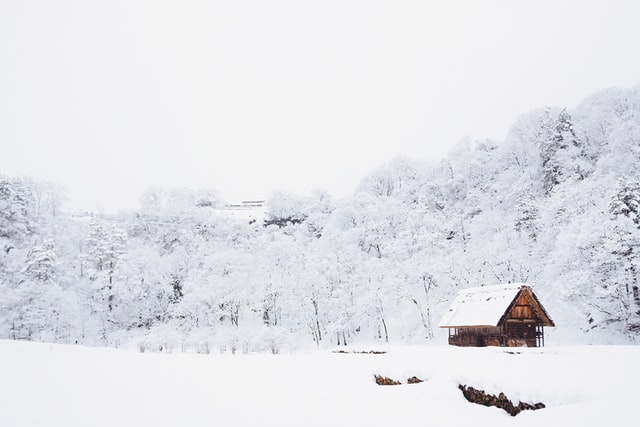27th Jan 2022
Why are winters getting colder if the planets getting warmer?
Are winters getting colder?
Many have argued that the cold winters we saw over the past few years are evidence against global climate change. But there's actually growing evidence that Arctic winters are warming. Now first things first, climate is not the same as weather. Weather is what's happening in the atmosphere over a short period of time, while climate is long term patterns.
There have been claims by major scientific bodies that the earth warming up was actually causing winters to become colder. Specifically, these scientists have been claiming that climate change was causing winters in North America to become colder via a mechanism called the Stratospheric Polar Vortex.
With colder winters and soaring energy prices, now is the perfect time to be buying logs and filling up your log store!

Cold Winters in Years Gone By
You may recall that back in 2020, Texas was hit by a wave of extremely cold weather, or that in 2019, Chicago was hit by similar conditions. In fact, it was so cold in Chicago, it was colder than the surface of Mars! Cold enough that people were advised to not talk outside in case it damaged their lungs! Crazy right?
For us UK folk, you may remember the beast from the east back in 2018. This huge snowstorm covered the entire country. All of these events were caused by the Stratospheric Polar Vortex - an enormous doughnut of air spinning over the North Pole 10s of kilometres above the surface and one of the middle layers of the atmosphere called the stratosphere.
That's a large area of low pressure and cold air that hangs out near one of the Earth's poles. There are actually two polar vortexes in each but the one in the north is the one that everybody's talking about because it's the one that Chicago can sometimes get enveloped by. It's usually kept in place by the Jetstream a fast big river of air blowing in a counterclockwise.
The Stratospheric Polar Vortex
Normally it rotates at about 200 kilometres per hour, but roughly once every other year it shreds itself apart in an event called a sudden stratospheric warming. In the space of a week the middle atmosphere heats up by 10s of degrees Celsius. Weather at the surface is changed and specifically it's changed because of the jet stream, which is this ribbon of fast moving air that is moved further south and it meanders around a bit. What that means essentially is air that is normally trapped over the Arctic, is allowed to meander a bit further south and can sit over the UK causing bitterly cold spells and huge snowfall.
The physical mechanisms by which the vortex and the jet stream are coupled isn't exactly known, but what we know for sure is that when the vortex eats itself apart, extremely cold weather events are much more likely.
The argument goes that because the Arctic is warming much faster than the rest of the world due to a phenomenon called Arctic amplification, the temperature gradient between the Pole and the equator is lessening and because of that reading is what drives the polar vortex.
So are we going to see more cold winters?
If the science is correct, yes, we're absolutely likely to see more cold winters, though not every year. Winter 2021/22 has been incredibly mild so there will always be exceptions to the rule.
With soaring energy prices, now is the perfect time to fill up your kiln dried log store and lock in 2021 prices!

